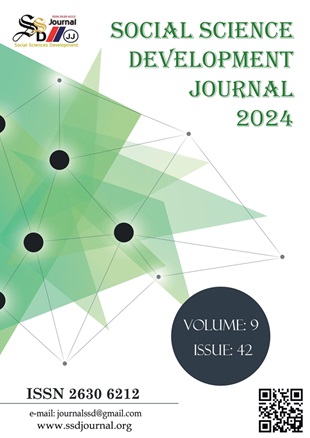PERCEPTIONS REGARDING THE EARTHQUAKE OF INDIVIDUALS WHO WERE IN EARLY CHILDHOOD DURING THE 1999 EARTHQUAKES
DOI:
https://doi.org/10.31567/ssd.1122Keywords:
Early childhood, 1999 earthquake, Düzce earthquake, Gölcük earthquakeAbstract
The participants of the research are individuals between the ages of 26-29 who were in preschool
period at the time of the 1999 earthquake. 17 individuals participated in the research. In this
research, case study, was used, data were collected by interview technique. With the Personal
Information Form and Earthquake Perception Form created, the interview was carried out in 3-10
minutes, the interviews were recorded and given in the findings section. The Earthquake Perception
Form consists of 5 questions and is a form to determine the feelings, emotions and thoughts of
individuals about earthquakes. The interview questions prepared by the researchers were prepared
in accordance with the case study method. In this context, 5 basic questions were addressed in the
research in order to determine what the individuals in question experienced, how they felt and
thought about the earthquake phenomenon. Individuals were asked questions within the scope of (1)
the problems they experienced, (2) their emotional state about the earthquake, (3) their postearthquake migration situation, (4) their information about the earthquake, and (5) the metaphors
they produced about their perceptions of the earthquake. The participants stated the problems they
experienced after the earthquake, their migration situation, their knowledge and feelings about the
earthquake, and also produced metaphors of "anomaly, desperation, fear, death, destruction,
breathlessness, screaming, disaster, restlessness, stress and haste" related to the concept.




